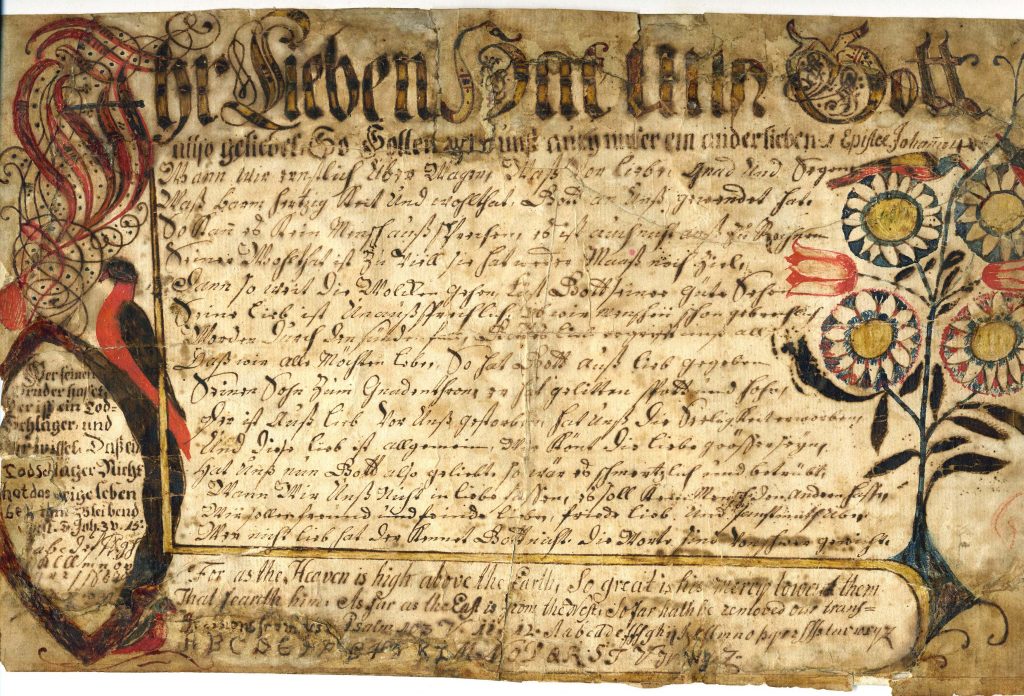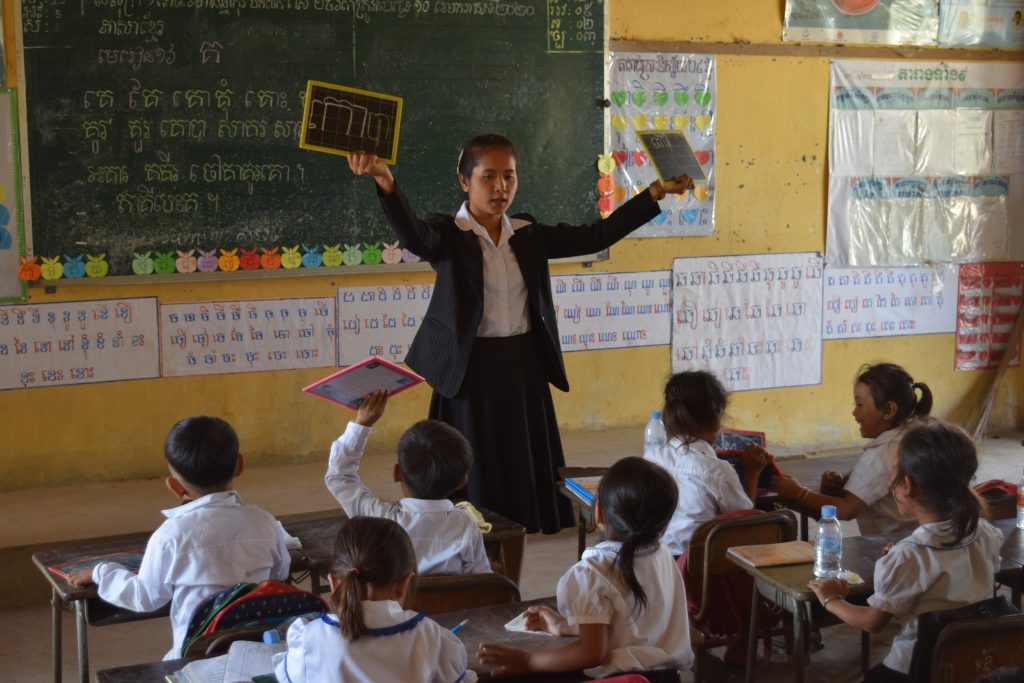Our rural primary school education program is making the shift to focus on peaceful education and that’s had me thinking about Christopher Dock. No, no, not Crystal’s high school but the educator for whom it is named.

Christopher Dock was a Mennonite educator who taught in the Skippack area from 1718 to 1771 (with a ten year break in 1735). He wrote what is believed to be North America’s first book on teaching methodology. Colonial era schools were known for harsh physical discipline delivered at the whim of the teacher. Consider that Nathaniel Greene, who was a Quaker preacher, felt that duty required him to flog his son with a horsewhip.
“Students are like horses on the road,
Crabbe’s Schoolmaster
Must be well lashed before they take the load;
They may be willing for a time to run,
But you must whip them, ere the work be done.”
“One wagoner does not use half as hard shouts, scourges and blows as another and yet drives as hard or even harder over mountain and valley, and when the work is done the willing horses and the wagoner have had it the easier.— They have done willingly what others have done through severity.”
School Management (1750) by Christopher Dock
It has to be noted that Christopher Dock was not completely nonviolent in his teaching methodology, he still advised the use of the rod in certain situations, but his student focused methodology was remarkable in his time. The benefit of the student, rather than the domination of the student, was his objective.
Experience in keeping school shows that a child, which is timid, if it is punished severely either with words or with the rod, is thereby more injured than benefitted. If such a child is to be improved it must be by other means. In the same way a child that is dumb is more injured by blows than improved. A child which at home is treated with blows and is accustomed to them will not at school be made right by blows, but still worse. If such children are to be made better it must be in some other way.
Excerpt of School Management (1750) by Christopher Dock, translated by Samuel W. Pennypacker
Famously, Christopher Dock prayed for his pupils every evening until he passed away in 1771 – on his knees in his schoolhouse.

Christopher Dock was also an early fraktur artist. He gave his students pieces of this artwork to encourage them and celebrate their achievements. Learn a bit more about fraktur, a traditional American folk art (especially among the Pennsylvanian ‘Dutch’), on our 2019 Picture Frame Shop post.
Over three centuries after Christopher Dock started teaching in what would become the United States, Mennonites are still working at promoting peaceful education and it’s something that’s gaining traction in our rural primary school education program.
In the 1960s, Cambodia led the region in public education (matched only by Singapore) but that capacity was tragically lost due to the Khmer Rouge regime’s mass murder of the educated class. In the decades that followed, the local education system has relied on rote memorization with students subjected to physical, verbal, and social punishment. This punishment has been delivered not only for disobedience but for poor performance, failure to conform, or just the teacher having a bad day. One subconscious lesson delivered through the education system has been that authority figures are to be obeyed, not questioned. This was an intentional lesson of the Khmer Rouge regime and that regime’s survivors passed it the next generation. Epigenetic damage, passed on from the generation who survived the Khmer Rouge, results in trauma symptoms even in students who were born during times of peace. However, as a testimony to the human spirit, the education system has slowly been moving forward from its traumatic past.
Our previous Education Coordinator, Martin, found that there was a generational divide among the teachers he worked with. Older teachers – who had lived through the Khmer Rouge – were usually more resistant to non-violent classroom control while new teachers – born decades after the Khmer Rouge – were usually more open to alternative teaching methodology. This shifted last year, a few months after Martin headed home, as the Cambodian Ministry of Education issued a mandate that all teaching should be non-violent. When I visited Prey Veng during a lapse in COVID-19 I was surprised when teachers who had specifically brushed off Martin’s teacher coaching suddenly asked me to have him come back to teach them the material again.

This is one reason that we’ve decided to double down on peaceful education during the next project cycle. The other reason is that Room to Read, an excellent organization focused on early literacy, just signed an agreement to support all of the primary schools across the rural province. Instead of duplicating supports we decided to look at what MCC’s niche was and focus on our strengths. I went into the details of our teaching coaching program back in this 2019 post on Rural Primary School Teaching Coaching. It wasn’t a surprise that peaceful education emerged as an area where MCC Cambodia could build from success.
In the next project cycle, we’re planning to expand our teaching coaching and classroom supports. We’ll also be introducing a peace club pilot for sixth graders localized from models used by MCC in Africa and Laos. The breakfast program will continue as needed. We’ll be phasing out our early literacy program including the tablets but some aspects of it may be carried on as part of teacher coaching. Our ‘it takes a village’ child protection program will continue and, hopefully, expand as well.
Excellent!
Thanks, Charles and Crystal. I was always concerned “how” I presented material, lessons, as what students learned wasn’t necessarily what I thought I taught. Blessings as you share with teachers in their awesome jobs. Love seeing how your daughters are progressing. Mary Rittenhouse Schwartzentruber, Plains Congregation
Dear Mary, you always have such a warm and gentle spirit. I think that your students likely learned not only their lessons but also great deal from “how” you instructed them. We try to hold 1 Corthinians 13 close to our hearts as we work too.